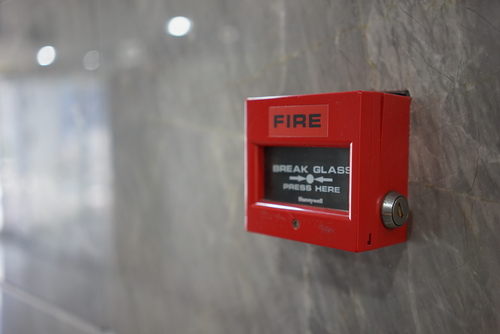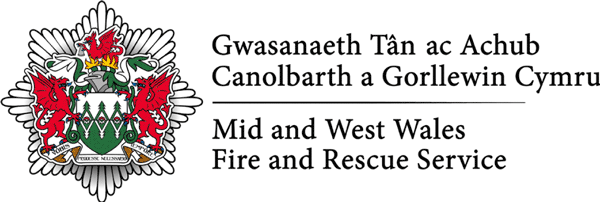Watch this short animation video explaining why this is happening and how it will improve the service.
What is an Automatic Fire Alarm (AFA)?
An Automatic Fire Alarm (AFA) generally consist of an element that detects the presence of smoke or flames and an element that warns people of a possible fire by a sounder or speech. Some of them may be monitored by an external company that relays the activation notification to our Fire Control room, these companies are known as Alarm Receiving Centres (ARCs).
Unfortunately, most signals from these systems are not actual fires. They are false alarms often caused by cooking fumes, dust or a lack of maintenance. These unwanted fire alarm signals mean our fire crews are called out unnecessarily.

How are we adapting the way we respond to Automatic Fire Alarm calls?
As of July 1st 2024, we will not respond to any calls originating from Automatic Fire Alarm systems (day and night) with the exception of the following:
- Residential Premises (includes sheltered and assisted living schemes, student halls of residence, boarding elements of schools, prisons and on site NHS staff accommodation)
- Nursing and Care Homes
- Premises subject to a fire safety Prohibition or Enforcement Notice
Why are we adapting the way we respond to Automatic Fire Alarm calls?
- Each false alarm can lead people to become complacent when they hear the fire alarm.
- There is a cost to you as a business or organisation from productive time lost.
- There is a cost to Mid & West Wales Fire and Rescue Service from deploying Firefighting resources unnecessarily.
- Mid & West Wales Fire and Rescue Service will not be diverted from other emergencies, training or work aimed to reducing risk in the communities that we serve.
- Any reduction of unnecessary vehicular movement means less risk on our roads.
- We limit the environmental impact of unnecessary vehicular movements.
We will always respond to confirmed fires which will attract a full or enhanced emergency response, dependent upon the information received.
Remember: In an emergency or if you know there is a fire in a building, dial 999 immediately – even if the building has an automatic fire alarm. We will always provide an operational response for 999 calls.
How many false alarms from Automatic Fire Alarms do you currently respond to?
Over the last five years, 99% of the Commercial AFA incidents we attended were false alarms. These accounted for nearly a fifth of all incidents – that’s six fire engines a day being sent out to false alarms where there isn’t a fire.
What causes a false alarm?
Fire alarm and detection systems activate as a result of either an increase in heat or the presence of smoke. Unfortunately, they can also react to things such as steam, cigarette smoke, vapes, aerosol sprays or light smoke from cooking. These may be caused by poor working practices, badly sited detector heads or a fire alarm system that is not serviced properly.
Does this apply if I live in a residential property?
No. If you live in a residential property comprising of private homes, sheltered housing, purpose-built flats, houses in multiple occupation (HMO), student halls of residence, NHS accommodation or boarding schools for example – you will continue to receive a Fire Service response from Automatic Fire Alarm calls provided that the Alarm Receiving Centre can identify your premises as being classified as a residential premises.
What are my responsibilities as a business owner?
Business owners and managers have legal responsibilities regarding fire safety.
You should consider how you utilise Automatic Fire Alarms as part of your fire strategy and if necessary, update your fire risk assessment and evacuation plan. You may need to arrange training for staff designated as fire wardens, marshals, or key holders.
If your fire alarm is connected to an Alarm Receiving Centre, make sure your key holder information is accurate and robust enough to ensure a key holder is always available during periods of staff absence or when the premises is unoccupied. You may wish to consider linking your alarm system to CCTV.
What do I need to do next?
As a duty holder you must ensure that your premises are safe for staff, visitors and occupants in the event of a fire. You have a responsibility under the The Regulatory Reform (Fire Safety) Order 2005 to maintain the facilities and equipment provided. Failure to do this could lead to prosecution.
Staff and occupants must be made aware of how to respond safely to Automatic Fire Alarm activations in each premises. Ignoring them or assuming the Fire and Rescue Service has been notified could put people at risk.
You may want to contact your insurance company to discuss the changes in response to Automatic Fire Alarm activations, but please note that Mid & West Wales Fire and Rescue Service will always attend a confirmed fire. If there is a fire you should always call 999 immediately.
Fireprotection@mawwfire.gov.uk

